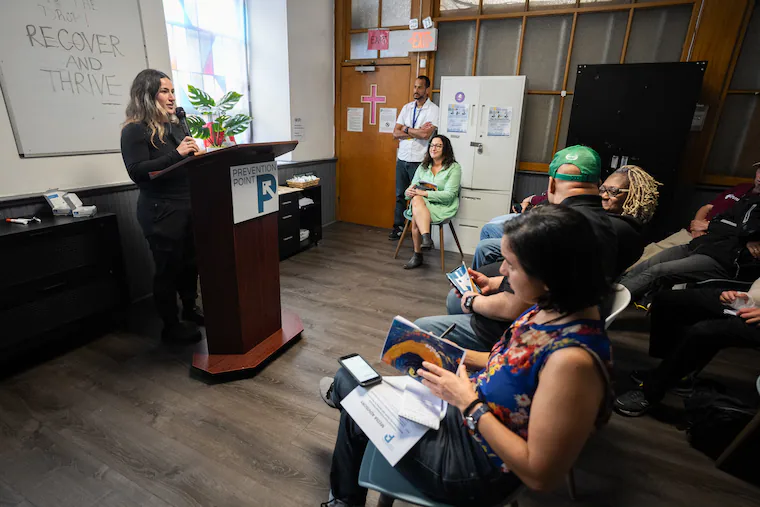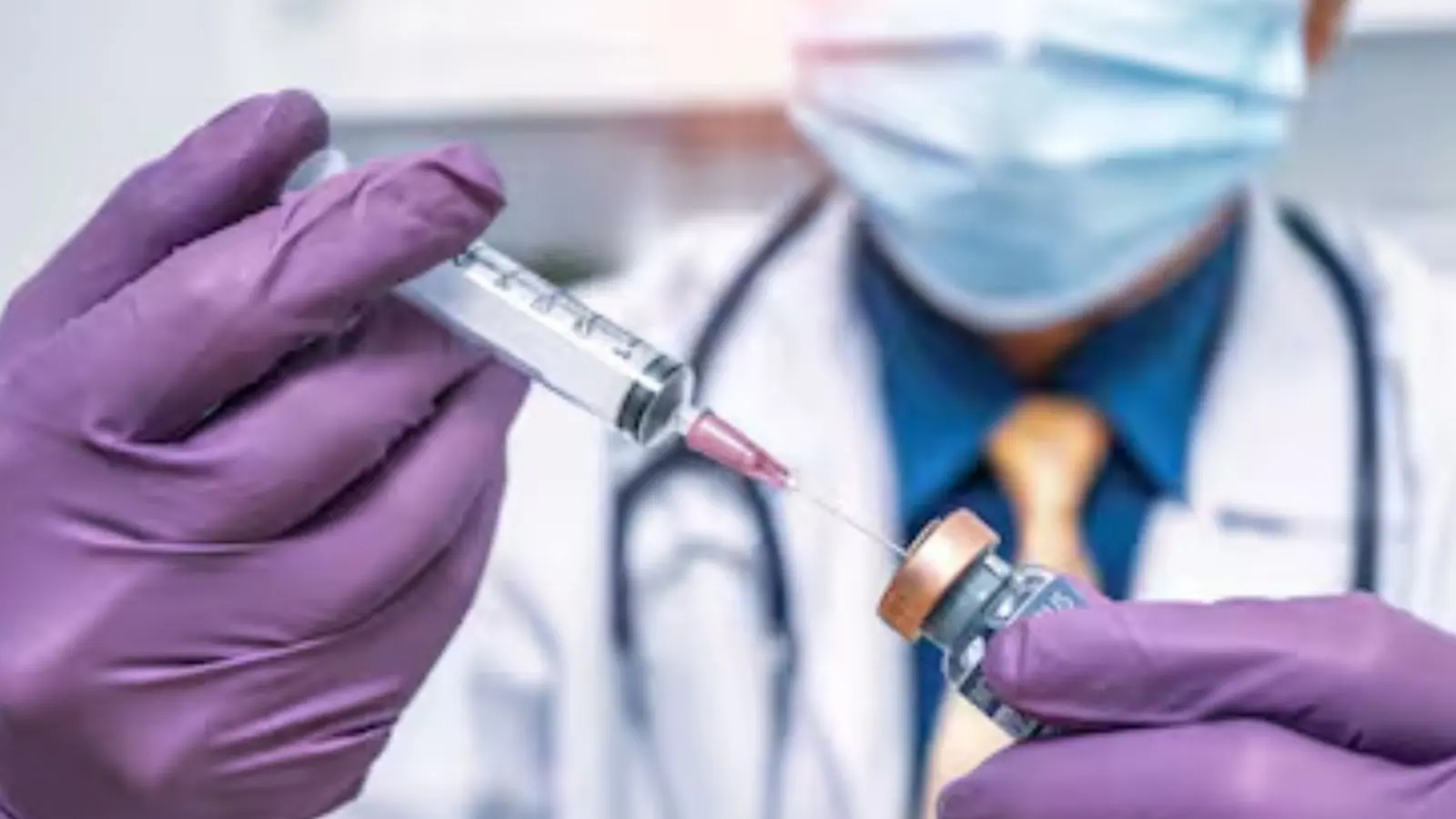
As of Thursday, Larry Colon has been sober for 368 days.
He didn’t start using drugs because of peer pressure, or because he was chasing the feeling they promised. Colon said he was lonely, and he saw community in the drug users in Kensington.
His first overdose happened a few blocks from the Kensington nonprofit, Prevention Point Philadelphia. Its staff members revived him, and the introduction to the organization set Colon toward his recovery.
“They were my conscience when I didn’t have it,” he said. With Prevention Point’s support, Colon learned how to move forward from his addiction.
Colon was one of several individuals in recovery who spoke about their experiences at Prevention Point on Thursday, as the addiction treatment and harm reduction organization celebrated National Recovery Month with a “Recover & Thrive” event.
” Today is about celebrating the truth that people do thrive in recovery. Progress happens one step at a time, and it doesn’t matter how slowly you go,” said Denise Botcheos, director of behavior health services at Prevention Point.
Challenges for Prevention Point’s future
Prevention Point’s funding and operations have been threatened, as some city officials have argued that its harm reduction practices ought to be reigned in.
Last year, Mayor Cherelle L. Parker cut $1 million in funding for syringe exchange services at Prevention Point from the city budget. She has said she supports wide-ranging public health strategies to address the opioid epidemic, but that syringe programs should be privately funded.
City Councilmember Quetcy Lozada, who represents Kensington, has been clear that she wishes the organization gone from the neighborhood. Some Kensington residents have long complained and expressed frustration about people who receive services from places like Prevention Point lingering on their blocks.
» READ MORE: Restrictions on Kensington outreach services won’t be enforced yet
Prevention Point has shrunk its schedule for handing out sterile syringes in response and has relied on private fundraising to cover the difference, officials there said last winter.
And the city zoning board in December voted to bar multiple medical providers from working at the same time at the organization’s headquarters on Kensington Avenue, as they had been for years. The nonprofit has appealed the decision, and said on Thursday that their services have continued on a normal basis.
Even with heightened scrutiny, Prevention Point’s reach may be widening. Over the 2025 fiscal year, the organization’s program that converts participants to long-acting medication to aid their recovery, grew by 24% to treat over 500 individuals, according to Prevention Point.
The expanded use of opioid treatment drug Sublocade, which can be injected as little as once a month, has been “a game-changer” for people in recovery, according to Prevention Point’s medical director, Serge-Emile Simpson.
While the future for Prevention Point and other organizations like it in Kensington is not so clear, the individuals speaking Thursday said its impact was undeniable.
Ricky Austin, whose hips still hurt from the years he used to spend sleeping on cardboard, said he would not have recovered without the “unconditional love” he received from Prevention Point. Even when he came in just for a cup of coffee after a cold night on the street, it helped.
“I love this place. This place was a godsend when I didn’t have anything else,” he said.
» READ MORE: More older Black men in Philadelphia are dying of overdoses than many other places in the U.S.: ‘It’s like a secret disease’
Diamond Stahl has attempted recovery more times than she can count, but her addiction held strong. She thought putting as much distance as possible between her and Kensington would help, but even when she, her son, and his father moved to Mississippi, Stahl couldn’t stop using.
“It didn’t take long for me to find what I needed,” she said.
Stahl moved back to Philadelphia by herself, and went back to the street. One day, she ran into James Sherman, an old friend whom she once used with. Sherman had since turned his own life around, and was back in Kensington doing outreach work with another harm reduction organization, Savage Sisters.
Stahl was embarrassed to see him. She smelled and had blood all over her sleeves from injections. But Sherman welcomed her, and helped her get into treatment.
” Being able to see somebody that I once used substances with make it out to the other side and be so selfless enough to come back to this community … I couldn’t believe it,“ she said.
Now, Stahl is over three years in recovery, and is living with her son. She is a certified recovery specialist at Prevention Point.
Stahl is rediscovering parts of her that were shrouded by addiction, like who she is as a partner and a coworker. She now treasures getting to take care of her son every day.
” Recovery has truly given me these huge blessings that sometimes I feel like I don’t deserve, but it is so attainable. And I’m just so grateful to be here,” she said.



